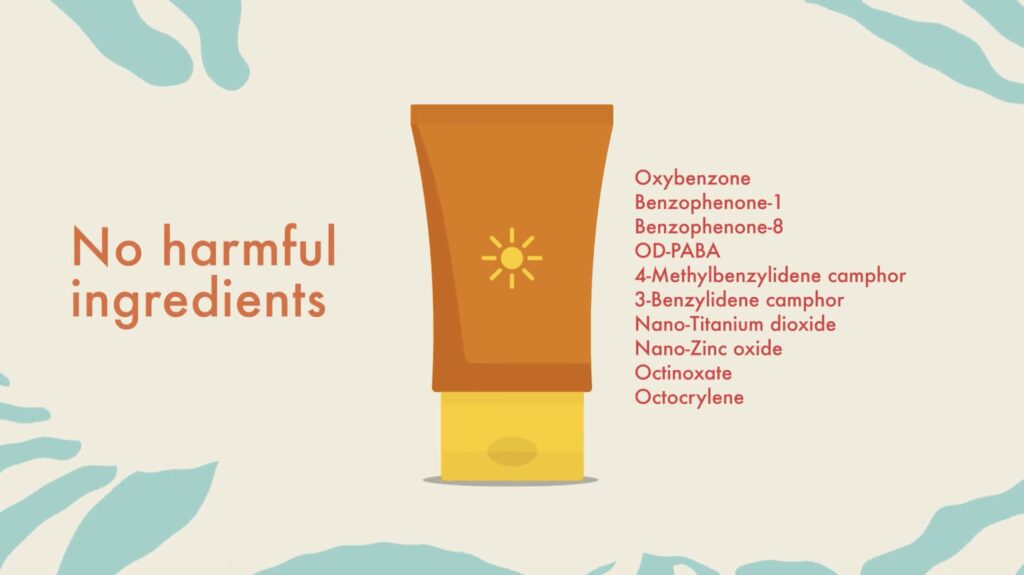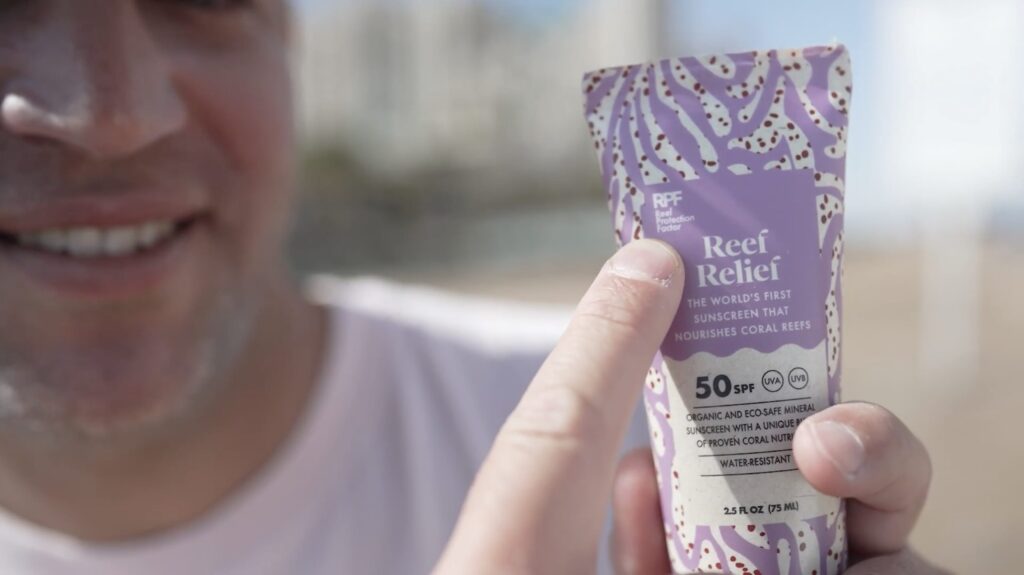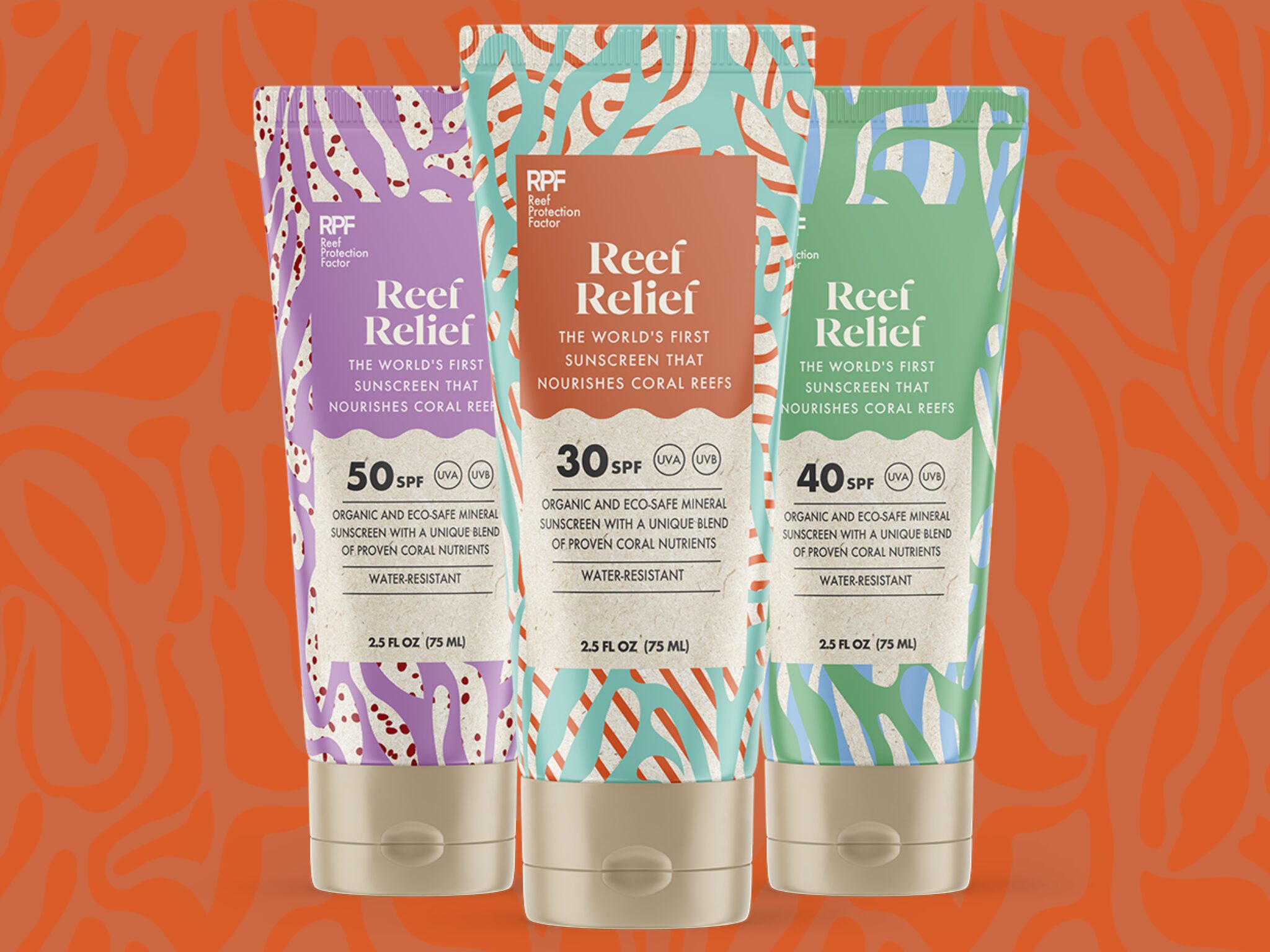This Biodiversity-Positive Sunscreen Nourishes Coral Reefs While Protecting Your Skin
4 Mins Read
Skincare brand Stream2Sea and scientists from the University of Derby have developed a sunscreen that feeds and nourishes coral reefs.
Sunscreen has become a political issue. From “anti-SPF conspiracy theorists” denouncing their efficacy to Alexandria Ocasio-Cortez vouching for better regulatory standards to increase access, these cosmetic products are a hot topic.
One of the major points of discussion is the toxicity of sunscreens, thanks to the presence of certain chemicals. For example, oxybenzone is a UV filter that absorbs UVB radiation and is present in around 80% of all sunscreen products. Some have suggested that it can disrupt the hormone system in humans, while there’s also strong evidence that the compound turns into sunlight-activated toxins in the sea, killing coral reefs.
It’s why governments are banning sunscreen with certain chemicals. Hawaii, the US Virgin Islands and Key West, Florida have all done so recently. This has also given birth to the reef-safe sunscreen industry, with products based on mineral formulations and free from coral-harming chemicals.
But now, one product is hoping to take the reef-friendly efforts further, developing a product that doesn’t just protect them, but also actively supports their health and growth.
Reef Relief bids adieu to chemicals

Developed by Florida-based skincare label Stream2Sea, scientists from the University of Derby in the UK, and global ad agency McCann, Reef Relief is a sunscreen range that feeds and nourishes coral reefs while protecting human skin.
An estimated 14,000 tonnes of sunscreen enter the waterways every year, with significant amounts accumulating in areas with heavy tourism. And even in small doses, the makers of Reef Relief suggest that the chemicals here have a lethal effect on coral reefs, which are crucial for a quarter of all marine life and beneficial to over a billion people as a source of food, medicine, coastal protection and income.
This makes corals one of the planet’s most important ecosystems, with a global value of $2.7T per year. “However, if we continue harming the world’s reefs and do not make any substantial changes to our carbon footprint and other stressors associated with reef decline, 90% of these important ecosystems could be functionally extinct by 2030,” warns Michael Sweet, molecular ecology professor at the University of Derby and coordinating author for the UN World Ocean Assessment.
Reef Relief comprises a bespoke formula with an eco-certification-compliant base, removing all the harmful chemicals found in sunscreens, including oxybenzone, benzophenone and octinoxate. Plus, it also contains an FDA-approved blend of marine nutrients that corals naturally feed on.
“This is game-changing. A simple, important and powerful idea and exactly what the world needs more of – original thinking leading to a product and initiative that could genuinely benefit the planet,” says Jon Elsom, group executive creative director of McCann Central.
The sunscreen has been two years in the making, and was soft-launched in 2023. Sweet and his team were brought in to undertake further testing, with six months of coral tests proving that the product can boost coral growth by as much as 8% in some species.
A new certification system for sunscreens

The sunscreen is introduced in a new ad created by McCann. “When I first heard about Reef Relief, I got really excited about how something could be changed from the negative to a positive,” Sweet says in the video. “The world needs more concepts and products like Reef Relief.”
The commercial has been shortlisted in the Product Innovation category for the Cannes Lions Innovation awards, which “celebrate ground-breaking innovation, technology and problem-solving ideas that turn imagination into impactful reality”.
Extending the impactfulness of the innovation, the makers of Reef Relief have also introduced an entirely new certification marque for sunscreens. While you may be familiar with SPF, they want you to also look out for RPF, or Reef Protection Factor.
This is because there’s a lot of misinformation surrounding reef-friendly sunscreens, thanks to a lack of regulation on terms like ‘reef-safe’ on product packaging. As the Sustainable Tourism Association of Hawaii points out, this effectively makes these labels “simply a marketing term”.
But RPF is a scientifically validated certification, and the aim is to make it an industry standard, having all sunscreens carry it on their packaging eventually. With 79% of consumers having doubts about eco claims on beauty products, and nine in 10 factoring in sustainability and ethics when purchasing them, such certifications could help them detect greenwashing and make more informed decisions.
Stream2Sea and McCann are now engaging in talks with governments and tourism bodies to launch their nature-based solution to the sunscreen problem in their territories.



